- Home
- Courtney Milan
Hamilton's Battalion Page 20
Hamilton's Battalion Read online
Page 20
There was a way that John said Lizzie’s name, something both soft and impenetrable, all at once. “You fought in a war you didn’t believe in for years to free the man your sister loved?”
John shrugged, as if it were nothing. “People have fought wars for far stupider reasons. And this time I told her why I was going, and I promised to come back to her.”
“And here you are. Coming back.”
John looked away. “It was a lie,” he said softly. “Every man who died on a battlefield had promised some sweetheart he would return. Some months ago, Allan freed Noah. He and Lizzie were married, and there began to be…incidents. Newport was much worsened by the British occupation, and people who have little often resent those they believe should have less. Rudenesses at first, then things left on my family’s doorstep. My sister said she expected they’d be warned out at any moment.”
“People are terrible.”
“I promised to come back,” John said softly, “and here I am, coming, as fast as I can. But I have not heard from Lizzie in six months, and I do not know if there is a back to return to any longer.”
Henry swallowed. “I’m sure—”
John held up a hand. “You’re not sure of anything. I’ll say it all for you. The mail in the army has been wretched. It was wretched during the occupation, and it’s not much better now. I try not to let the worry wear down my spirit, but…” Another shrug. “If I’ve been a bit harsh with you, that’s why. I’ve been eaten up with worry these last weeks.”
Henry sat up straight, started to reach out a hand, and then pulled it back. “Don’t apologize.”
Their eyes met again over the fire. A spark blossomed in his chest, painful and fierce and desperate, all at once. It was a wild feeling. A generous feeling. He wanted to take the world down, brick by brick, and put it back together again the way it was supposed to be. Nobody should have to worry, not like this. Least of all John.
Oh, Henry thought. Oh. That’s what this is. It was… Friendship, but warmer. Care, but with a softness to it. It was a journey shared, coming closer to the end with every day.
“Very well,” John said. “Then I won’t apologize. You’ll do it prettily enough for both of us if I just keep my mouth shut.”
“You made a joke.” Henry found himself smiling. “I like when you make jokes.”
John didn’t smile in response. That would have trivialized the light in his eyes, the amused purse of his lips. He didn’t smile, but he shook his head. “I do that sometimes. That’s what friends do.”
Chapter Seven
John eyed that night’s cheese dubiously. It had become a ritual between them—cheese every night, just before dinner, so they could drown out the taste with whatever meal they had.
The fire was crackling; the brace of pigeons he’d fetched with his sling roasted merrily on a spit. When he stretched his arm, he could almost straighten it all the way out before his shoulder complained. He could mark the passing of this journey by these little things.
“The cheese is delicious,” he said.
“Say it as if you mean it, John.” Henry spoke from across the fire.
John looked up. Looked into his companion’s eyes—wide, open, inviting.
“The cheese is delicious.”
Speaking of things they were lying about…He didn’t know why he did it—maybe for no better reason than it made him happy in a way that was deeply selfish—but he always tried to make eye contact with Henry when he said those words. He emphasized the word delicious, rolling the syllables off his tongue.
Delicious.
Henry flushed, right on cue. And if John’s own cheeks heated, well, that was no business of anyone’s but his. Henry would never detect the blush.
John wasn’t sure when Henry had transformed from pretty British officer, not to be trusted into friend, definitely should be teased. He wasn’t sure if he was teasing himself or Henry. Both, he suspected.
That low sense of awareness built between them, coiling in John’s gut, buzzing just beneath his skin. It simmered at night when they lay back-to-back.
But Henry hadn’t said a word about it, for all his blushes, and if Henry didn’t want to have a conversation about a topic, there was probably a reason. When Henry wanted to talk about his attraction to men in general, and John in particular, John trusted that he would do so. At length.
“Well?” That faint pinkening of Henry’s cheeks—his entire face, nose, forehead—deepened under John’s perusal. “If the cheese is delicious, eat it.”
John put it in his mouth.
Maybe it was because he was still watching Henry. Maybe it was because he was thinking about Henry’s attraction to him and avoiding the more salient, pressing matter of his own attraction to Henry. Maybe it was just the cheese.
Whatever the reason might have been, John’s life changed forever in that moment for one undeniable reason.
He forgot to hate the cheese.
He forgot it so thoroughly, looking into Henry’s eyes, that he didn’t cough. He didn’t spit out his mouthful. He chewed. He swallowed.
“My God,” Henry murmured worshipfully. “It’s happening. It’s finally happening. I told you it was happening.”
“What’s happening?”
“I told you,” Henry cackled. “I told you that it was starting to change. I told you that there was a richness to the flavor, but did you listen? No.”
Oh. God. Damn. John straightened where he sat, tasting the lingering flavor on his tongue with something close to horror. It had been bad, hadn’t it? Wretched? Disgusting?
“It wasn’t good,” he said defensively. “Don’t get me wrong. There was nothing good about it. Contempt for the Cheese of Death has wrought familiarity, that’s all.”
“Just wait. I’ve been doing this longer than you. This is how it starts.”
This was how it started—watching the play of fire over Henry’s skin, the shift of his smiles. This was how it started, treasuring the flash of his eyes, the ripple of the muscles in his behind when he stood and bent over the fire, poking the pigeons, sending a few drops of their juice to land sizzling in the coals.
It had started with teasing and friendship, and John had no idea where it would go.
John just shook his head. “This is how it ends.”
“The cheese is delicious,” Henry said a few nights later, biting into his sliver.
It wasn’t delicious, not at the moment. But it had gone from utterly disgusting to almost palatable, and at this rate of progression, it would likely be ambrosia by the end of the year.
“The cheese is delicious,” John echoed, sliding his own bite into his mouth. His tongue was shockingly pink, the cheese a white morsel against his skin. His skin drank up the firelight, reflecting orange and red and pink. Henry wanted to chase the sight of those colors with his fingers, tracing them, warm, along the path up John’s neck. He shouldn’t think of John’s lips, but he did.
Also, he didn’t think John minded him thinking of his lips, as he hadn’t said anything like why are you staring at my lips? John would definitely have said that if he objected.
Possibly not.
“God rot it,” John said in annoyance, frowning up at the starry firmament. “The cheese is improving. We can’t have this.”
“It’s only natural.”
“It is not. This should not work. You can’t change the world around you just by claiming it’s different.”
“Of course you can,” Henry said. “Once upon a time, somebody said ‘Look, this piece of paper here equals a bit of gold,’ and then everyone agreed that it was and here we are.”
“Well, that’s—”
“And once upon a time, someone stuck a bunch of sticks in the ground and said ‘All the stuff inside these sticks is mine,’ and everyone else said, ‘Right-o’ and went to fetch their own sticks. Most of the things we believe to be true are only true because we believe them, instead of the reverse.”
“So if I be
lieved you to be a rabbit…” John smiled at him.
“Ah, me!” Henry brightened. “My favorite topic of conversation. As it turns out, I am an excellent example of this phenomenon. You see, my father always believed me a frivolous man.”
“Incapable of seeing beyond his nose, more like,” John muttered.
“And so did everyone around him,” Henry said. “Was he wrong? Or was his belief so powerful that he rendered me frivolous?”
“The fact that you can consider so ridiculous a question without bursting into laughter at the nonsensical nature of it rather agitates for the conclusion that you are not frivolous.”
“My father told me, when he purchased my commission, that he hoped I died valiantly in battle, as it would be the only way I could do credit to the family.”
John lifted the lid off the pot on the fire and poked at something inside it. “Your father is the anti-cheese. On inspection, he grows worse and worse.”
“And then I arrived here,” Henry said, “and I read that circular, and I had my thoughts. I engaged in the most frivolous treason anyone has ever engaged in. Even with him half an ocean distant, I couldn’t undo his beliefs, though. I had made my peace with dying because he believed I should. It’s hard to explain, but… I felt my choice was between living in England, frivolous and stupid, or dying here with a brain in my head. I couldn’t imagine any other alternative.”
“And now?”
“Now?” Henry sighed. “I’m living in a dream. In my dream, I’m on a journey. It’s a place removed from reality, and so I’m able to believe whatever I like.”
“Yes,” John said with a snort, “now there I very much disagree. I am not some figment of your dream. I exist. I am real. This is life, not some walking nightmare.”
“For you it is,” Henry said, eyes meeting his. “At the end of this journey, you’ll have family and a home there to greet you.”
John glanced sharply away.
“You told me to walk away from my life and not go back, but…” Henry sighed. “It’s not practical. I have no skills except cheesemongering, and even that is suspect, as it takes any person weeks to find my cheese passable. Also, we are on the way to running out.”
John did not point out that a potter’s son ought to have had some skills. He didn’t ask where the officers’ commission had come from. With the exception of a few tiny comments, he let Henry’s falsehoods lie when he could have made much of them. Henry was grateful for that. Still…
“I have sisters who are no doubt worrying about me, and a mother who is weeping, and even my terrible father may yet regret advising me to perish in a blaze of glory. I don’t want to be a frivolous, irresponsible fellow, but walking away from the British Army in a fit of pique in the middle of battle may be the most frivolous thing I’ve ever done.” Henry looked at John. “I don’t want to die, but I don’t know how to live, either.”
John didn’t say anything. He just stood, moved to sit next to Henry on the log. Having John close, having him sit down, his thigh warmed by the fire next to Henry—it was too much.
“And here you are,” Henry said, “being kind to me when you have so many more non-frivolous things to worry about, and I’m spilling this rubbish on your shoulders.”
John just took his hand. His fingers traced a pattern on Henry’s palm. “Well, you know I can’t outtalk you.”
Henry’s breath stopped. John was touching him. After weeks of distance, weeks of keeping a few careful inches between their backs at night… His mind ceased to function. He could feel his whole body shut down in appreciation. He looked blindly up at John, and even though his entire being was being consumed, he found he could still talk, because of course he could. “Nobody can outtalk me. It’s a fact of nature.”
“I don’t know how to tell you to live. I rather think that’s something you’ll have to figure out for yourself.”
His fingers traced a vein up Henry’s arm, and oh, Henry wanted. He wanted to curl his fingers around John’s wrist in return. He wanted to live.
“Yes, but—”
“But if I had made this trip alone, I’d have spent the entire time worrying myself into nothingness. I’d have had no conversation, nobody to make me laugh, nobody to feed me cheese, nobody to make me think.”
“Nobody to save you from bandits with ridiculous stories,” Henry said.
John reached out. The tips of his fingers brushed Henry’s face, and Henry felt his heart stop.
Oh, God. If he believed his heart was stopping now, would he actually be dead? Was it possible to perish from a sharp influx of pleasure? Could one pass away from delight?
Henry took a breath, then another.
Apparently one couldn’t, because John was touching him, and Henry had not died. That slow caress continued down his cheek.
“I don’t know what to say to you except this,” John murmured. “You have not been frivolous to me. You have been the foundation on which this journey is built. You have been necessary.”
“Necessary?” Henry echoed.
John’s thumb touched his lips.
“Necessary,” John repeated.
Henry exhaled. He set his hand over John’s. He should say something—anything. He didn’t.
“When you figure out how to live again,” John said, and he uttered when as if it were a foregone conclusion, not if, and Henry wanted, wanted, wanted, wanted to believe that when with his entire body. He wanted that when from the tips of his fingers, brushing against John’s hand, to the thud of his heart. He wanted it from the aroused tingle that traveled down his spine all the way to his still-silent lips. “When you figure it out, then let me know.”
Like smoke, John’s hand slipped away.
For some reason—a haze of lust, perhaps, or inexplicable happiness, or some combination of the two—Henry found himself babbling throughout the next day.
No topic was too stupid for him not to remark upon. Chicken sexing (a noble career, although impossible to do, which Henry knew because he had tried when he was seven to no avail). Dogfighting (an ignoble career). Familial infighting (not a career, all too easy to do, but never as satisfying in reality as imagining a far superior outcome to the conversation in one’s head).
He talked about everything except the one thing on his mind. Or perhaps it was not on his mind. Perhaps it was on his cock. In his cock? The particulars escaped him. How had they managed to not talk about this one thing over the course of their journey?
Henry had talked of literally everything else under the sun; why not this?
It wasn’t that the topic was taboo.
Well. So. It was, technically, but that had never stopped Henry.
It wasn’t as if he feared that John would fly into a rage or express disgust. They’d practically kissed last night.
Maybe it was simply that they had not talked about this one thing yet, despite its glaring obviousness, and it had now become awkward.
That awkwardness grew from morning to noon, from noon to late afternoon. By the time they were setting up camp that evening, the awkwardness—at least the awkwardness in Henry’s mind—had grown to epic proportions.
So Henry did what he often did with awkward situations. He blurted out precisely what was on his mind, just as they were unrolling their blankets.
“So,” he heard himself say, “I know I’ve never mentioned this before, but I’m certain you realize that I’ve fucked men?”
John’s face went utterly blank for one heart-stopping second. Then he laughed. “Oh, God. Henry. Only you. Only you would announce it in that fashion.”
Henry felt his face heat.
“No,” John said, “I did not know that, not for certain.”
“How could you not know? Was I insufficiently obvious?”
“Well.” John considered that. “You were very obvious. But that only told me that you admired men the way I do.”
Well. Good. They were both speaking about it.
“But I could hardly co
nclude anything about past behavior,” John said.
Why had they not spoken of it when it was so easy? Apparently that was all that needed to be said to make it not awkward any longer. Henry laid his sleeping roll out, then fetched water while John skinned the rabbit he’d snared that morning.
They made the fire together. Henry clipped wizened bits of carrot and turnip into the stew pot while John broke down the rabbit carcass.
He peered into his pack, rummaged around, before sitting up with a frown. “We’re out of bread.”
“Ah well,” John said. “We’ll live.”
They would. They’d done so before. But Henry liked bread, and he knew that John regarded him as just a little soft in comparison. He bit his lip. “There’s a household not a mile back. I could pay for a loaf, I’d wager.”
“We’re both exhausted. Rest; we need to make our miles tomorrow.”
“But John…” Henry tried to think of his very best argument. “Bread.”
“Oh, you think I’ll give in if you bat your eyelashes prettily? Well, it’s your coin and your feet. But you could stay here and tell me more about the fact you’ve fucked men.”
“You’re teasing me.”
“Yes, and you don’t dislike it. Did your father know? Did he do anything terrible to you?”
How John got to the heart of the matter so swiftly, Henry would never know.
“Here I am.” Henry gestured expansively. “Sent into the army to atone for my terrible sins, preferably by dying valiantly.”
John brought one hand up to his mouth as if to hide a smile.
“What? It’s actually not funny. He was most insistent. He said awful things.”

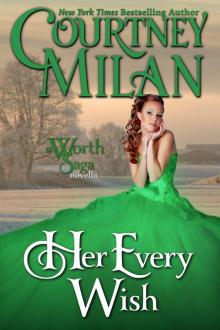 Her Every Wish
Her Every Wish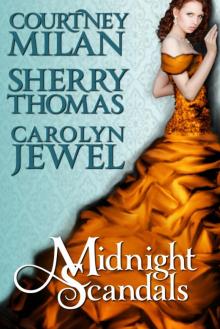 Midnight Scandals
Midnight Scandals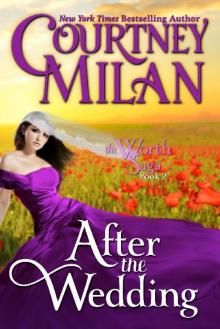 After the Wedding
After the Wedding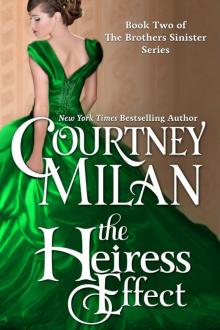 The Heiress Effect
The Heiress Effect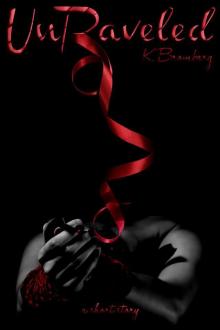 Unraveled
Unraveled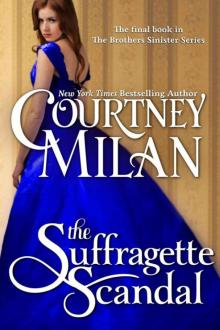 The Suffragette Scandal
The Suffragette Scandal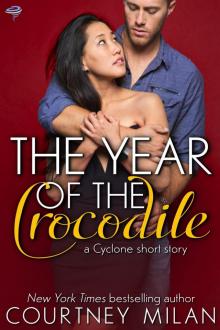 The Year of the Crocodile
The Year of the Crocodile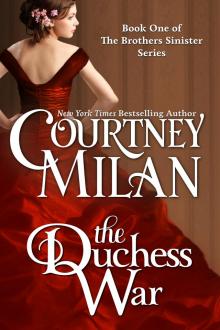 The Duchess War
The Duchess War What Happened at Midnight
What Happened at Midnight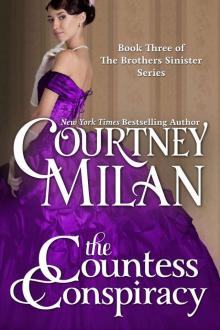 The Countess Conspiracy
The Countess Conspiracy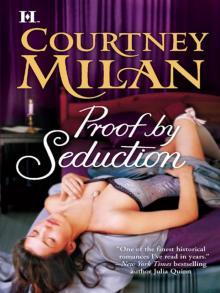 Proof by Seduction
Proof by Seduction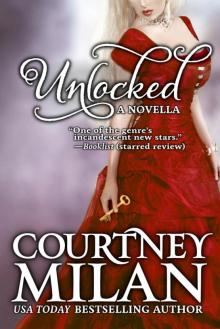 Unlocked
Unlocked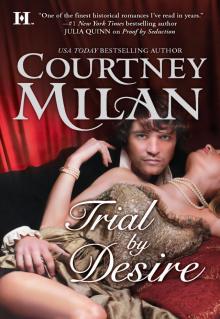 Trial by Desire
Trial by Desire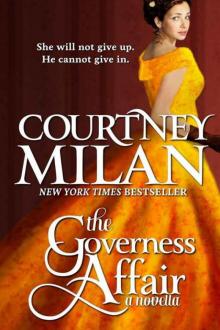 The Governess Affair
The Governess Affair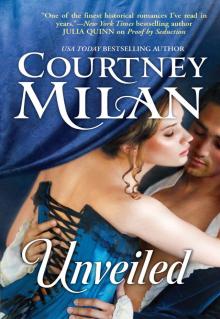 Unveiled
Unveiled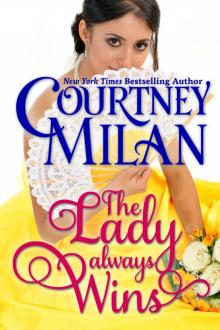 The Lady Always Wins
The Lady Always Wins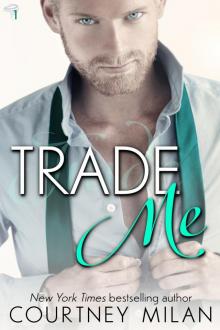 Trade Me
Trade Me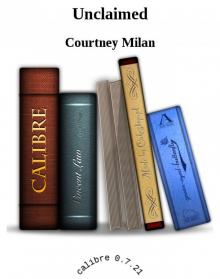 Unclaimed
Unclaimed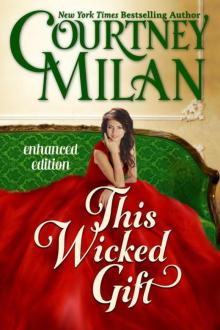 This Wicked Gift
This Wicked Gift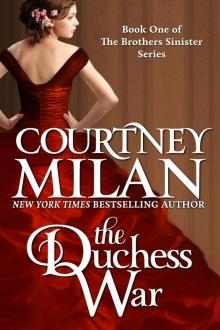 The Duchess War (The Brothers Sinister)
The Duchess War (The Brothers Sinister)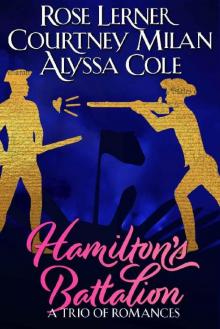 Hamilton's Battalion: A Trio of Romances
Hamilton's Battalion: A Trio of Romances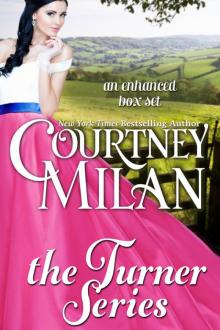 The Turner Series
The Turner Series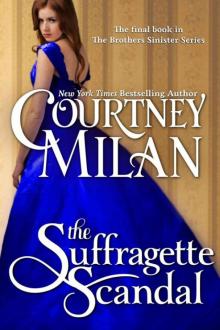 The Suffragette Scandal (The Brothers Sinister)
The Suffragette Scandal (The Brothers Sinister)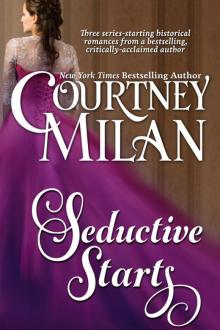 Seductive Starts
Seductive Starts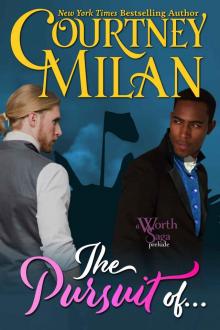 The Pursuit Of…
The Pursuit Of…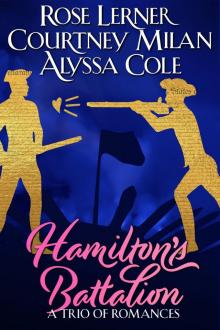 Hamilton's Battalion
Hamilton's Battalion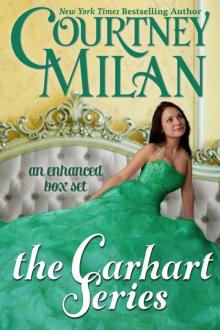 The Carhart Series
The Carhart Series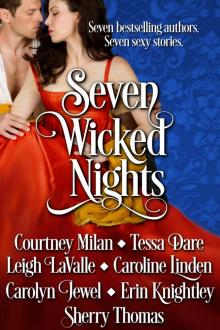 Seven Wicked Nights
Seven Wicked Nights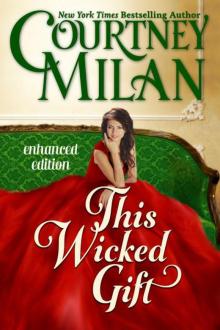 This Wicked Gift (A Carhart Series Novella)
This Wicked Gift (A Carhart Series Novella)